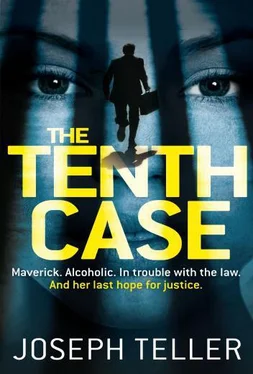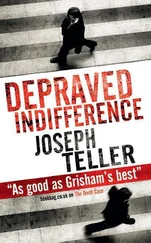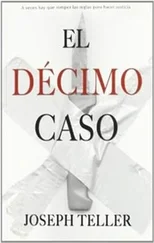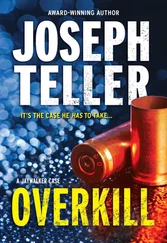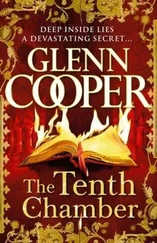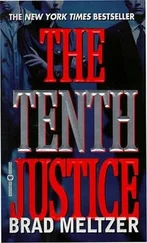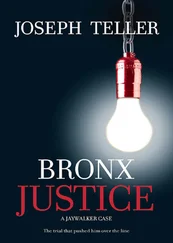Joseph Teller - The Tenth Case
Здесь есть возможность читать онлайн «Joseph Teller - The Tenth Case» — ознакомительный отрывок электронной книги совершенно бесплатно, а после прочтения отрывка купить полную версию. В некоторых случаях можно слушать аудио, скачать через торрент в формате fb2 и присутствует краткое содержание. Жанр: Криминальный детектив, на английском языке. Описание произведения, (предисловие) а так же отзывы посетителей доступны на портале библиотеки ЛибКат.
- Название:The Tenth Case
- Автор:
- Жанр:
- Год:неизвестен
- ISBN:нет данных
- Рейтинг книги:3 / 5. Голосов: 1
-
Избранное:Добавить в избранное
- Отзывы:
-
Ваша оценка:
- 60
- 1
- 2
- 3
- 4
- 5
The Tenth Case: краткое содержание, описание и аннотация
Предлагаем к чтению аннотацию, описание, краткое содержание или предисловие (зависит от того, что написал сам автор книги «The Tenth Case»). Если вы не нашли необходимую информацию о книге — напишите в комментариях, мы постараемся отыскать её.
The Tenth Case — читать онлайн ознакомительный отрывок
Ниже представлен текст книги, разбитый по страницам. Система сохранения места последней прочитанной страницы, позволяет с удобством читать онлайн бесплатно книгу «The Tenth Case», без необходимости каждый раз заново искать на чём Вы остановились. Поставьте закладку, и сможете в любой момент перейти на страницу, на которой закончили чтение.
Интервал:
Закладка:
"Panel entering!" announced a court officer, and a hun dred and twenty prospective jurors were ushered into the courtroom. They carried overcoats, hats, briefcases, tote bags, shopping bags, umbrellas, books, knitting, laptops, cell phones, lunch bags and whatever else they'd thought to bring with them to the courthouse that morning. They looked at the judge, at the lawyers, at the court officers, and at the American flag and the curious IN OD WE TRUST sign on the wall above it. But mostly they looked at Samara Tannenbaum. Stared at her, to be more precise. With jury selection looming, the media had recently rediscovered the case, and any of the prospective jurors who claimed over the next two days to know nothing about the defen dant or the crime she stood accused of-and there would be a handful-were either brain-dead, living on another planet or flat-out lying.
Jaywalker, sitting next to the object of the stares, did his best to project an attitude of quiet confidence. Right now, as the prospective jurors took seats in the long rows of benches that made up the spectator section, he was speaking with his client, one hand on her shoulder, the way a father might speak with a daughter. Look at me, he was telling the jurors. Look at how I trust her. I'm sitting right next to her, talking with her, touching her, making contact with her. There's nothing scary about her, no reason for me to be afraid of her. Or for you to be, either, for that matter.
The touching was a big part of it, so much so that there was actually one judge in the system who'd gone so far as to prohibit it altogether. Jaywalker, who personally be lieved that the consensual touching of another adult was a form of expression protected by the First Amendment, had persisted in doing so, despite several mid-trial warnings. His behavior had cost him a contempt citation, a thousanddollar fine and a one-night sleepover date at Rikers Island.
But he'd won the trial.
Judge Sobel didn't have a no-touching rule, and Tom Burke either hadn't noticed or was too confident of his case to worry about it. Even Jaywalker himself knew that it was going to take a lot more than touching Samara to get her off. In fact, jury selection itself posed a huge prob lem for him. Going into a trial, Jaywalker almost always had a preconceived notion as to what kind of jurors he wanted on that specific case. Because the process was a crapshoot-meaning you never really knew what you were getting with any particular individual-you were pretty much reduced to playing hunches and going with the odds. And going with the odds meant you followed stereotypes. Prosecutors invariably looked for establishment types- clean-shaven, Republican-voting, white businessmen who showed up wearing suits and ties, carrying leather attache cases. Jaywalker sought out ethnic minorities drawn to teaching, social work and the humanities, people who would no more put on a necktie to do jury service than they would rent a tuxedo to watch a ball game on TV. He looked for those young enough to still be idealistic, or old enough to have learned how to forgive. Unemployed was good, a military background bad. Irish, Germans and Italians were to be avoided as tough on crime, blacks and Jews embraced as empathetic toward underdogs. Crime victims were suspect, while those who'd been accused of crimes were sought after. And so the guessing game went.
But beyond stereotypes, it was the nature of the case- and, even more so, the nature of the defendant-that dictated what type of juror Jaywalker wanted. If his client was African-American, he wanted blacks; if Hispanic, he wanted fellow Latinos. If the case was likely to turn on the word of police witnesses, he wanted jurors from Harlem who knew that cops stole and lied. People who viewed them as oppressors, in other words, rather than protectors. If it was sympathy he needed, he wanted women. But not just any women. No, he wanted women who took in HIV-positive foster children, looked after crack babies, volunteered at soup kitchens and read to the blind in their spare time.
Samara's case posed huge problems. The media had unfailingly portrayed her as a spoiled brat, a gold digger and a shameless adulteress. She was white and rich. Ac cused of plunging a knife into her husband's heart, she was hardly a candidate for sympathy. And the evidence would show that it hadn't been the police who'd lied this time around, but Samara herself who'd lied to them. Even her looks might work against her. Women of all ages, sizes, shapes and shades of color were likely to be jealous of Samara's prettiness and petiteness. Men, even as they might be dazzled by her beauty, could hardly be forgiven for identifying with her husband-victim.
Which left precious little room for the ideal juror. Unless, that was, Jaywalker happened to come across twelve equally pretty and petite gold diggers who'd had occasion to murder their husbands, either in real life or only in their fantasies.
As the clerk swore in the panel, Jaywalker looked around the room to see which of the prospective jurors would choose to affirm, rather than take an oath that ended with the words "So help me, God." A prohibitive long shot in the trial, he was looking for anyone with the slightest anti-establishment bent. After all, it would take twelve jurors to convict Samara, but only one to hang the jury.
Every one of them took the oath.
The clerk spun a large wooden drum, the kind they used to use at bingo parlors, and pulled out a slip of paper. "Seat number one," she said, "Ronald Macauley, M-A-C-A-U L-E-Y." A man rose from the back of the room and made
his way to the jury box. He was white, fiftyish, wore a dark suit and tie, and carried a Coach attache case. No good, Jaywalker thought. On a tear sheet of a homemade chart on the table in front of him, he wrote: MR. MACAULEY
The clerk repeated the process until the box had been filled, with twelve jurors taking up the regular seats and another six relegated to the chairs set aside for alternates. Jaywalker made notes for each of them. By the time the eighteenth was seated, he had two OKs, five question marks and eleven NGs.
As he'd expected, it was going to be a very long day.
Judge Sobel addressed the panel, speaking loudly enough so that not only those in the jury box could hear him but so could those back in the spectator section. He introduced the "parties," as he referred to them-Burke, Jaywalker and Samara-and had each of them stand in turn and face the rear of the room. Then he described the case, reading the indictment as part of it, and made some general remarks. Next he asked if there were any prospective jurors who felt they were unqualified to serve on the case.
A sea of raised hands responded. One by one, jurors approached the bench to explain why they couldn't pos sibly serve.
"I could never judge a fellow human being."
"I look at her, and I know she's guilty."
"I'm indispensable at work."
"I have plane tickets to Aruba this Friday."
"I have a cat I can't leave home alone all day."
"I have an unusually small bladder."
"No speak English."
One by one, the judge excused them. Then he individu ally questioned the eighteen sitting in the box, a number that included some who'd been there from the start and others who'd been added to replace casualties of the process. He inquired about their occupations, their places of birth and their family status, and whether they'd ever been the victim of a crime or been accused of having com mitted one. Each time a juror said something meaningful to Jaywalker's way of thinking, he made a note of it on the corresponding tear sheet, and from time to time he even changed his overall impression of a particular juror. A couple of original question marks soured into NGs, and several NGs became NG! s. But at the end there were still only two OKs, and neither of those had sprouted an!
Читать дальшеИнтервал:
Закладка:
Похожие книги на «The Tenth Case»
Представляем Вашему вниманию похожие книги на «The Tenth Case» списком для выбора. Мы отобрали схожую по названию и смыслу литературу в надежде предоставить читателям больше вариантов отыскать новые, интересные, ещё непрочитанные произведения.
Обсуждение, отзывы о книге «The Tenth Case» и просто собственные мнения читателей. Оставьте ваши комментарии, напишите, что Вы думаете о произведении, его смысле или главных героях. Укажите что конкретно понравилось, а что нет, и почему Вы так считаете.
